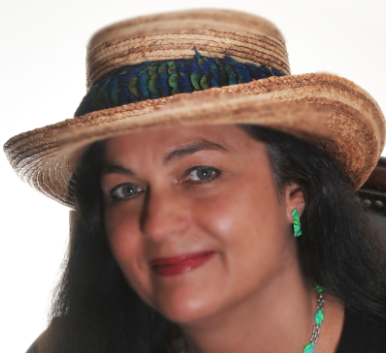Remembering Indigenous History: The Past Is Never Over
 By T. Lulani
Arquette
By T. Lulani
Arquette August 14, 2012
Over the years, when discussing Indigenous history and many of the injustices perpetrated upon the Native peoples who populate what is now Hawai’i, Alaska and the continental U.S., I’ve often heard people say, “That’s history and things are better now” or “What’s [in the] past has passed; its time to move forward.”
I believe Native peoples have moved forward and are thriving in many instances. Cultures and languages are being strengthened, Native businesses and organizations are numerous, and a path has been laid for a whole new generation of tech savvy Indigenous leaders. There are Native lawyers, doctors, Ph.D.s, teachers, athletes, entertainers and artists.
It’s important to remember that our progress as Native peoples has been gradual and each generation is furthering the work of the last. Our progress is the culmination of 50 years of marches, protests and lobbying. My generation experienced the unrest of the late 60s and turbulent 70s. In the 80s and 90s, there were endless nights of deep discussion and debate about self-determination, Native rights, land and resource issues, and subsequent testimony and legislation.
The importance of one’s ancestry and culture was profound. Many of us sought out and listened to our elders speak about values and community; we participated in sacred ceremonies. Questions were pondered such as what it meant to be Native Hawaiian (in my case) or a member of another particular tribe or Indigenous group. If we didn’t speak our languages, we learned enough to understand the deeper knowledge of our cultures, and we encouraged our children to learn their language. Always, always, always, we sought out and remembered our history that came before us, no matter how painful and traumatic.
Through remembering, we didn’t seek to punish others, or even ourselves for our own inadequacies. The remembering created a space for deep emotion and reflection. It honored all the sacrifices of those involved, both heroes and ordinary people, some who died early in the struggles. We wanted those governments and institutions that had continued to uphold the wrongdoing to apologize, to denounce the horrible mistakes of their forbears, and agree to stop destructive practices that dehumanize the Indigenous peoples of Hawai’i, Alaska, and the Americas. We wanted them to change and work with us to make it right. The remembering is empowering and provocative…it is also brutally honest and gut wrenching.
This remembering is necessary for every Indigenous person, every citizen of this country, and others with an interest in the truth. Through the remembering, we all gain knowledge and are able to take action. The remembering allows us to heal and move on, and to create positive change collectively. We feel more fulfilled and aware.
Just as important, if we allow it, the remembering fosters sublime creativity. The remembering brought my generation of Native peoples (baby boomers in Western terms) to where we are today. With immense courage we fought for the passage of new laws, sat at boardroom tables, and ignored the naysayers. Our creativity poured forth in literature, films, and music that influenced the world. We championed our cultures, values, and languages in the education system and in the workplace.
Respect, humility, and service to others were always there amidst the conflict and struggles. So when I hear someone imply, “The past is over…Native peoples need to move on,” I think to myself, “The past is never over, it’s part of the very fiber of my “being.” The truth is we are moving on and will continue to do whatever it takes to make this country and world a better place for everyone.
Part of this “moving on effort” involves telling the truth about history. What many in America don’t realize to this day, both Native and non-Native, is the sordid influence of the Doctrine of Discovery (DOD) which laid the groundwork for over five centuries of colonial oppression and still influences American policy and actions toward indigenous peoples today. Ask people if they know what this is, or what it stands for. While there are groups such as the Seventh Generation Fund and others rightfully working to educate people about the DOD, most people do not realize how pervasively destructive it has been to indigenous peoples and other ethnic groups worldwide.
The DOD is rooted in history, yes the “deep past,” that some people say we should “get over” and forget about. Its false precepts are imbedded in the subconscious of every single person who has grown up in this country, regardless of race or citizenship, because it is the very root of the fundamental philosophy on which Western Europe and America were founded and expanded. The Doctrine of Discovery is one of the most damaging philosophies ever created in the history of mankind.
T. Lulani Arquette (Native Hawaiian) is President and CEO of the Native Arts and Cultures Foundation in Vancouver, Washington.
© 1998 - 2012 Indian Country Today. All Rights Reserved To subscribe or visit go to: http://www.indiancountry.com